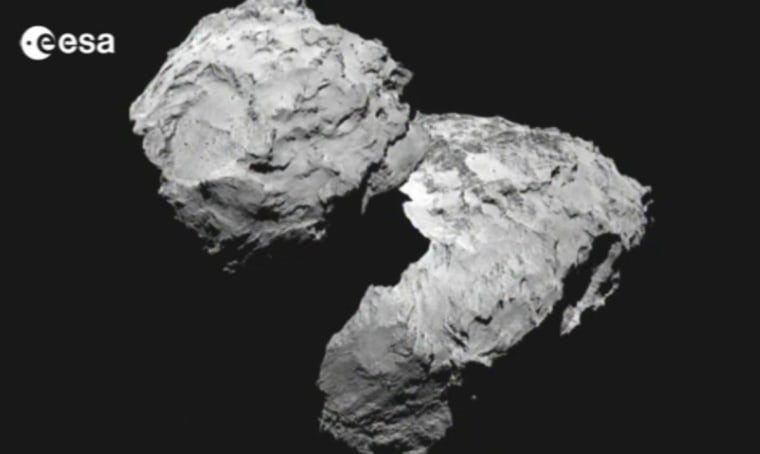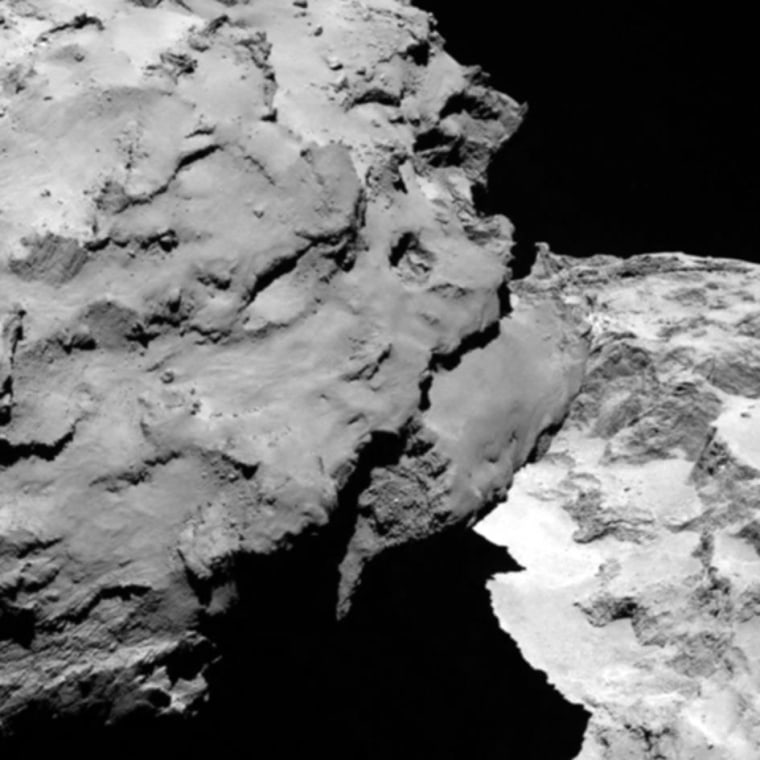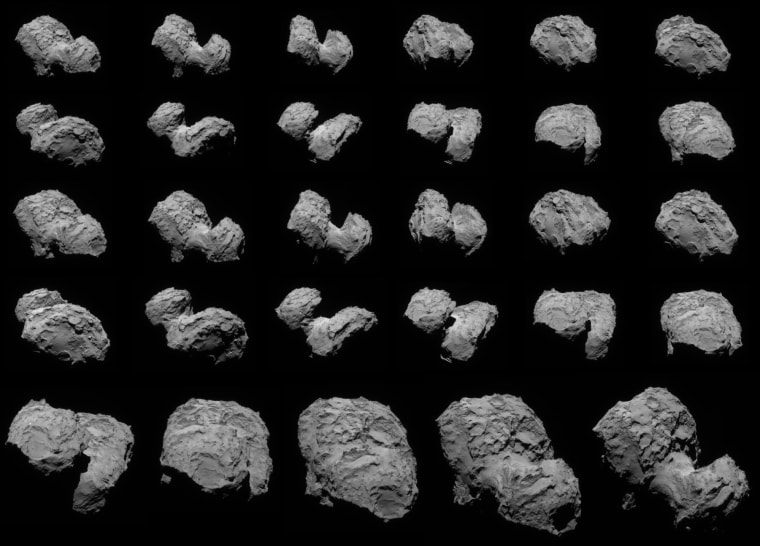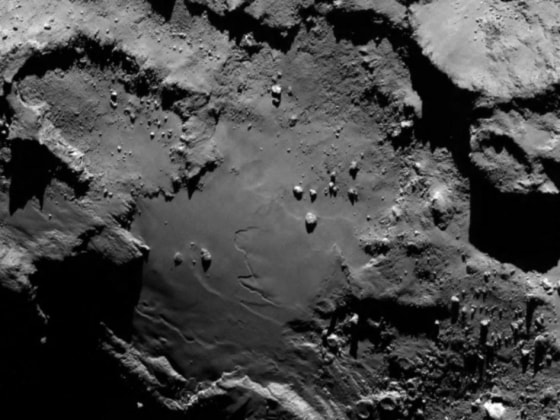There's no way you'd ever think Comet 67P/Churyumov-Gerasimenko looked like the moon in a wide-angle view, but the Rosetta probe's unprecedented close-up pictures can make the comet look positively moonlike — with flat plains and big boulders.
It's hard to conceive of a comet nucleus that looks weirder than Churyumov-Gerasimenko, also known as C-G or Cherry-Gerry. Even before Wednesday's historic rendezvous, the 2.5-mile-wide (4-kilometer-wide) object was compared to a rubber ducky, with a "head" and a "lower body" that may have been cemented together in space eons ago.
It's also possible that the comet's narrow "neck" was sculpted by the loss of cometary material during repeated passes around the sun. Holger Sierks, the principal investigator for Rosetta's OSIRIS camera, noted that the neck is one of the places that's ejecting jets of material out into space. "We see a lot of activity already, so far away from the sun," he said during a science briefing.


The comet is mostly made of ice, but Rosetta's readings show that its surface is covered with porous, dusty material. OSIRIS' high-resolution views reveal areas where material has apparently flowed into smooth sections, with house-sized boulders littering the plain. There are also dramatic overhangs that cast shadows on the comet's neck and lower body.
"We'll have to find out what this is made of. ... We don't understand yet how this is created," Sierks said.
Rosetta's scientists plan to gain a better understanding over the next year and a half, as the car-sized spacecraft descends toward Cherry-Gerry from its current height of 100 kilometers (62 miles). Sierks said the pictures should get at least 10 times sharper — and in November, Rosetta will send down its Philae lander to study the comet from the surface itself.
Mark McCaughrean, senior science adviser at the European Space Agency, compared the $1.75 billion (€1.3 billion) Rosetta mission to a "scientific Disneyland" — with a roller-coaster ride that's yet to come.
"I'll paraphrase Winston Churchill, if I may," the British-born McCaughrean said. "This is not the end. It's not the beginning of the end. It is the end of the beginning."

